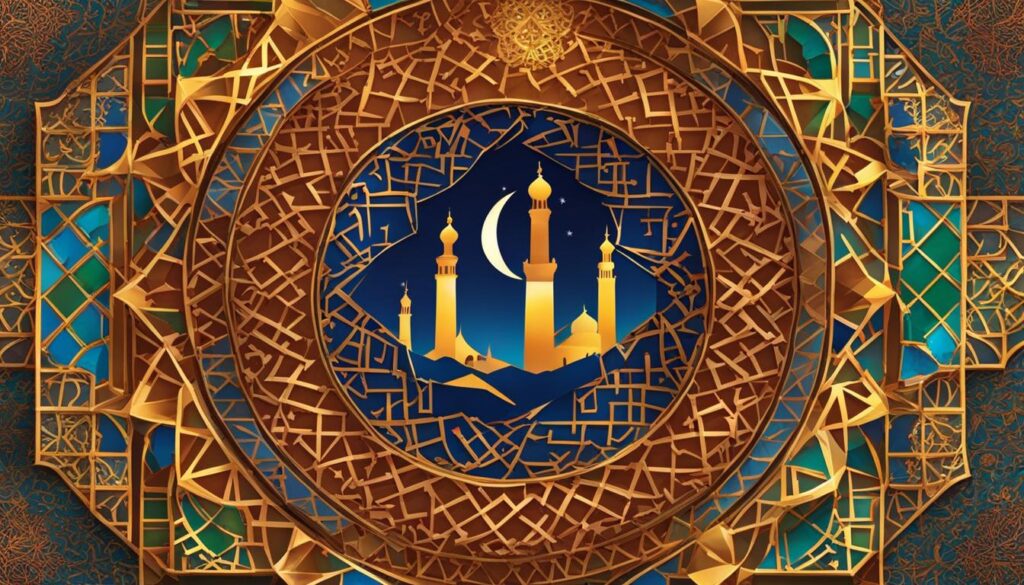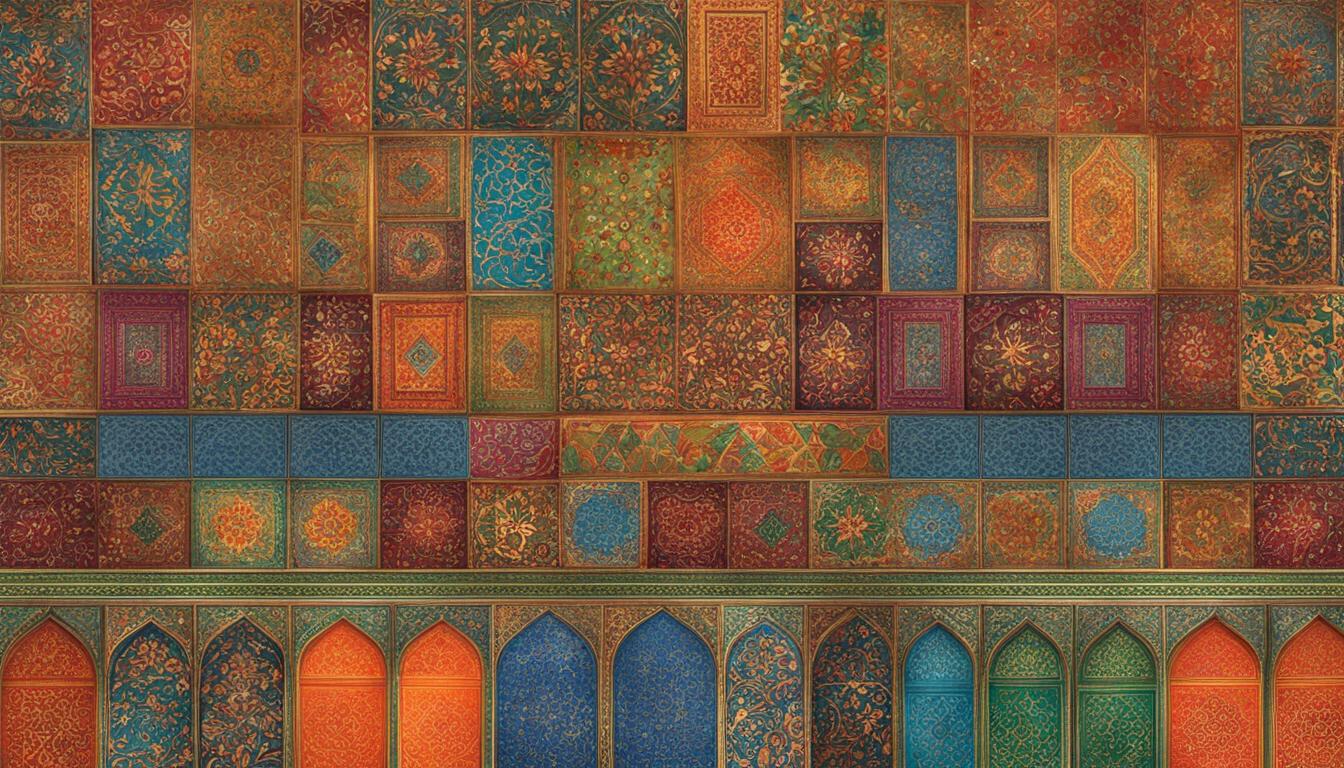Have you ever wondered about the dates of the Muslim holiday and when it takes place? In this article, we will explore the timing of the Muslim holiday, known as Ramadan, and its significance for Muslims worldwide. We will also delve into the Islamic calendar, which determines the dates of Muslim holidays and religious observances. Whether you are curious or looking to increase your cultural awareness, this article will provide you with all the information you need.
Key Takeaways:
- Ramadan is the 9th month of the Islamic calendar and is observed by Muslims worldwide.
- The timing of Ramadan shifts each year according to the lunar Islamic calendar, so the dates vary on the Gregorian calendar.
- Eid al-Fitr marks the end of Ramadan and is celebrated with prayers, feasting, and community gatherings.
- The Islamic calendar, known as the Hijri calendar, is a lunar calendar based on the cycles of the moon.
- Eid al-Fitr and Eid al-Adha are the two major holidays celebrated by Muslims worldwide.
Understanding the Islamic Calendar
The Islamic calendar, also known as the Hijri calendar, is a lunar calendar that plays a significant role in Muslim religious practices and holiday celebrations. It consists of 12 months based on the cycles of the moon, which makes it shorter than the solar-based Gregorian calendar. As a result, the dates of Islamic holidays shift each year in relation to the Gregorian calendar.
Unlike the Gregorian calendar, which follows a fixed pattern, the Islamic calendar is based on the sighting of the new moon. This means that the beginning of each month and the determination of Islamic holidays depend on the physical observation of the moon. It is a beautiful way of connecting with nature and observing the natural cycles.
The Islamic calendar follows a 354 or 355-day year, which is approximately 11 days shorter than the Gregorian year. This difference causes the dates of Islamic holidays to move forward each year. For example, if a holiday was celebrated in January one year, it would be observed in December the following year. This constant shifting creates a unique connection to the lunar cycles and adds diversity to the annual calendar of celebrations.
The Islamic calendar is not only a tool for determining the dates of Muslim holidays but also holds cultural and religious significance. It serves as a reminder of the historical events and important milestones in Islamic history. By understanding the Islamic calendar, individuals can gain a deeper appreciation for the religious practices and traditions observed by Muslims around the world.
Why the Islamic Calendar is Important
- The Islamic calendar is the basis for determining the dates of major Muslim holidays such as Eid al-Fitr and Eid al-Adha.
- It follows a lunar calendar system, which adds diversity to the ways in which time is measured and celebrated.
- Understanding the Islamic calendar fosters cultural awareness and promotes inclusivity in diverse communities.
Major Muslim Holidays
Islam has several major holidays that are celebrated by Muslims around the world. These holidays hold significant religious and cultural importance, fostering a sense of community and unity among Muslims.
Eid al-Fitr
Eid al-Fitr, also known as the Festival of Breaking the Fast, is one of the most widely celebrated Muslim holidays. It marks the end of Ramadan, the month of fasting, and is a time of joyous celebration. Muslims gather for prayers, share festive meals, exchange gifts, and give to those in need. It is a time to express gratitude, seek forgiveness, and strengthen familial and social bonds.
Eid al-Adha
Eid al-Adha, the Festival of Sacrifice, is another major holiday in Islam. It commemorates the story of Prophet Ibrahim’s willingness to sacrifice his son, Ismail, as an act of obedience to God. Muslims celebrate by attending communal prayers, sacrificing animals, and distributing meat to the needy. Eid al-Adha also marks the completion of the Hajj pilgrimage, making it a significant event for Muslims worldwide.
These two holidays, Eid al-Fitr and Eid al-Adha, are celebrated with great joy and enthusiasm, bringing families and communities together in celebration of their faith.

In conclusion, the Islamic calendar is filled with various important dates and festivals that hold great significance for Muslims worldwide. These dates provide opportunities for reflection, spiritual growth, and acts of worship. By respecting and understanding these dates, we can foster cultural awareness and promote inclusivity in diverse communities.
Conclusion
The Islamic calendar is a lunar calendar that determines the dates of important Muslim holidays and observances. Two major holidays, Eid al-Fitr and Eid al-Adha, mark the end of Ramadan and the Hajj pilgrimage, respectively. These holidays are celebrated with prayers, feasts, and acts of charity. In addition, there are other significant dates such as the Islamic New Year and Ashura, which hold symbolic and historical importance in the Muslim faith.
Understanding and respecting these important Muslim holidays fosters cultural awareness and promotes inclusivity in diverse communities. By acknowledging and celebrating Islamic holidays, individuals can contribute to an environment of acceptance and understanding. It is an opportunity to learn about different cultures and traditions, and to recognize the importance of religious observances in the lives of Muslims.
It is important to note that the Islamic calendar is different from the Gregorian calendar, and the dates of Muslim festivals vary each year. Therefore, it is advisable to consult a reliable source or a local Muslim community to determine the exact dates of these holidays. By doing so, individuals can effectively participate in and support their Muslim friends and neighbors during these important celebrations.
FAQ
When is Ramadan?
Ramadan is the 9th month of the Islamic calendar, and the dates vary each year on the Gregorian calendar. It is observed by Muslims worldwide as a month of fasting.
What is the Islamic calendar?
The Islamic calendar, also known as the Hijri calendar, is a lunar calendar based on the cycles of the moon. It consists of 12 months and is shorter than the Gregorian calendar.
What are the major Muslim holidays?
The two major Muslim holidays celebrated worldwide are Eid al-Fitr, which marks the end of Ramadan, and Eid al-Adha, which commemorates the willingness of Ibrahim to sacrifice his son.
What are other important Islamic dates?
In addition to Eid al-Fitr and Eid al-Adha, other significant Islamic dates include the Islamic New Year, Ashura, Prophet Muhammad’s birthday, the Night of Power, and the Day of Arafah.

